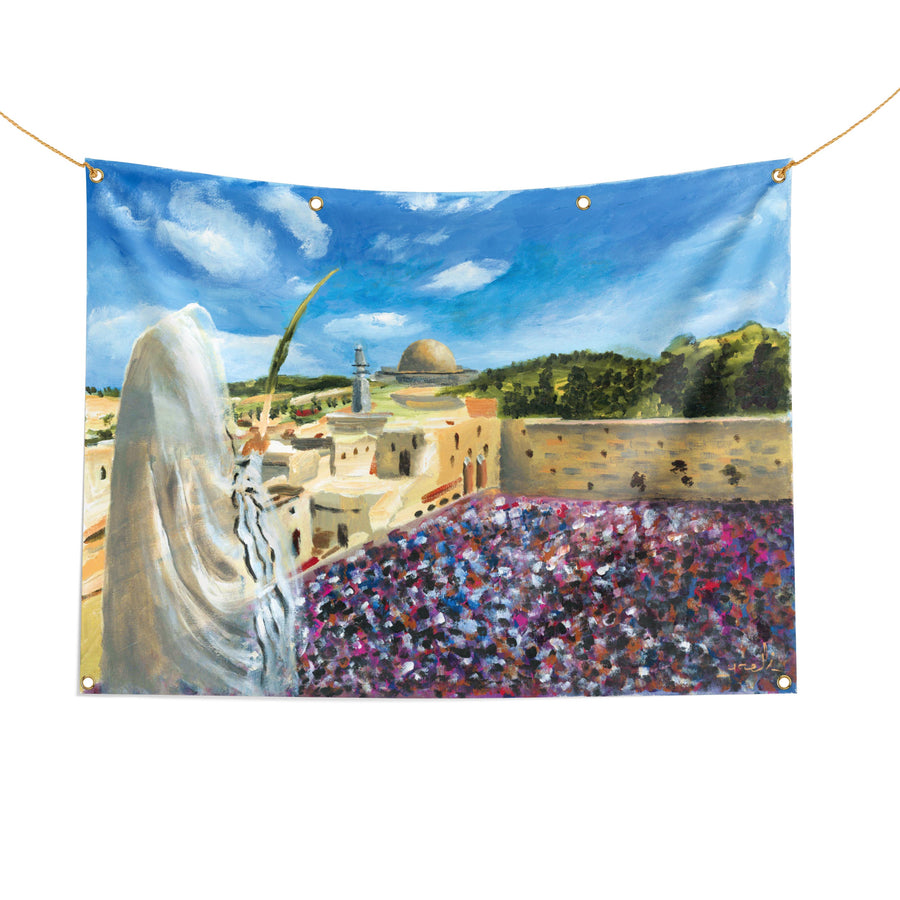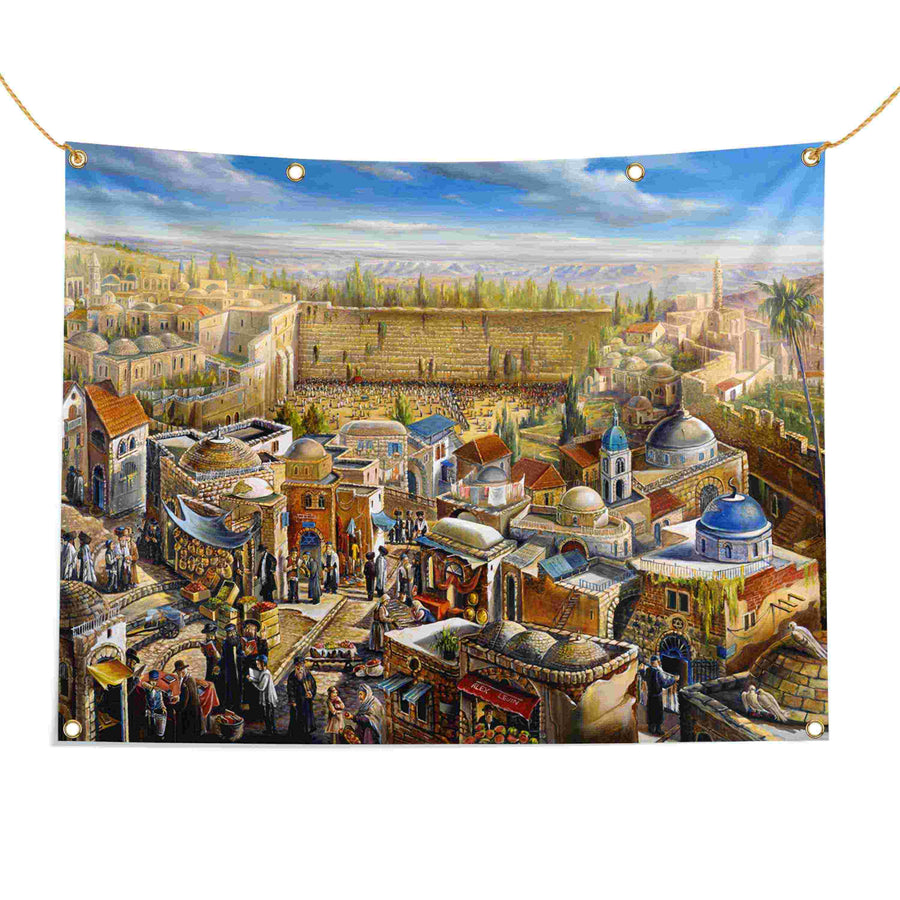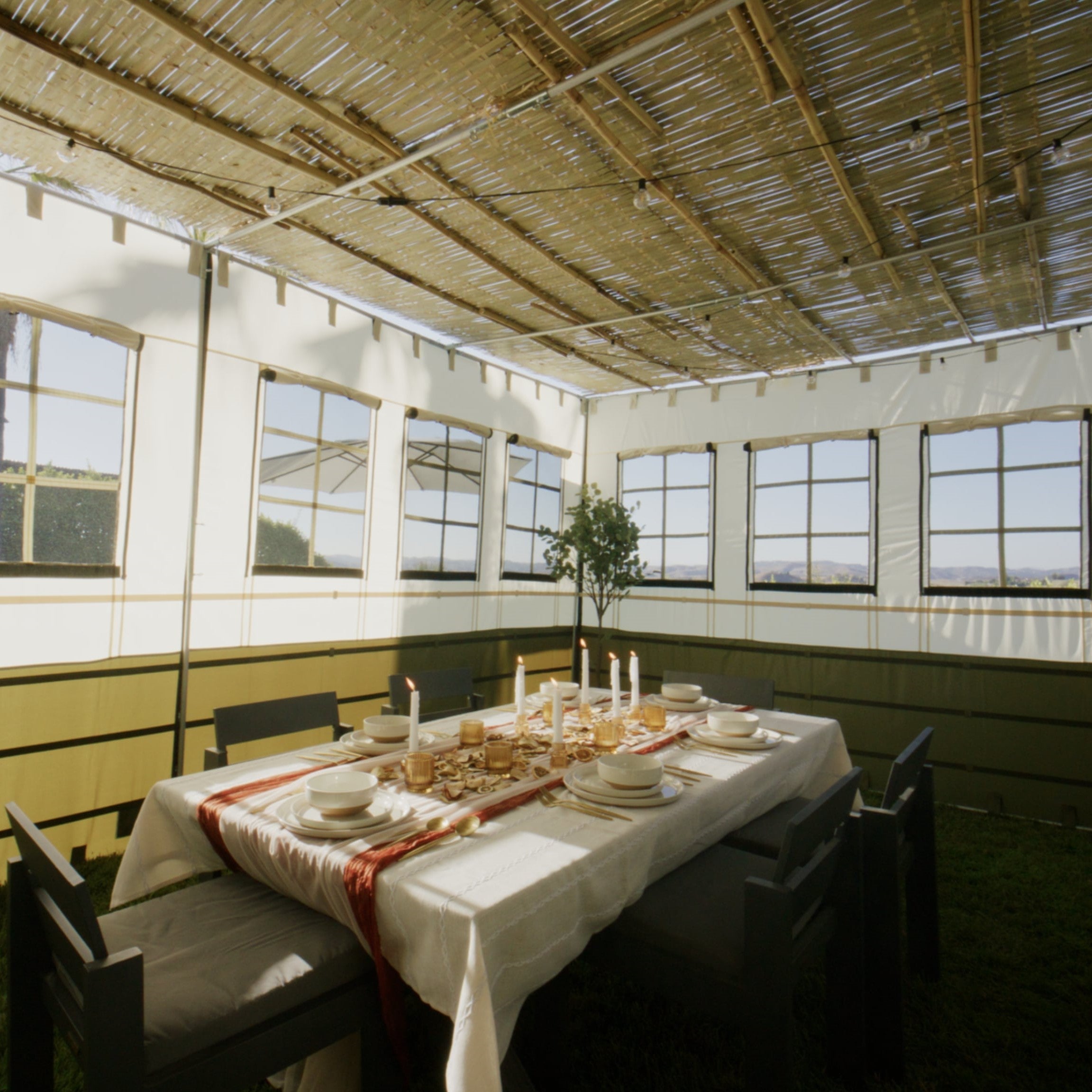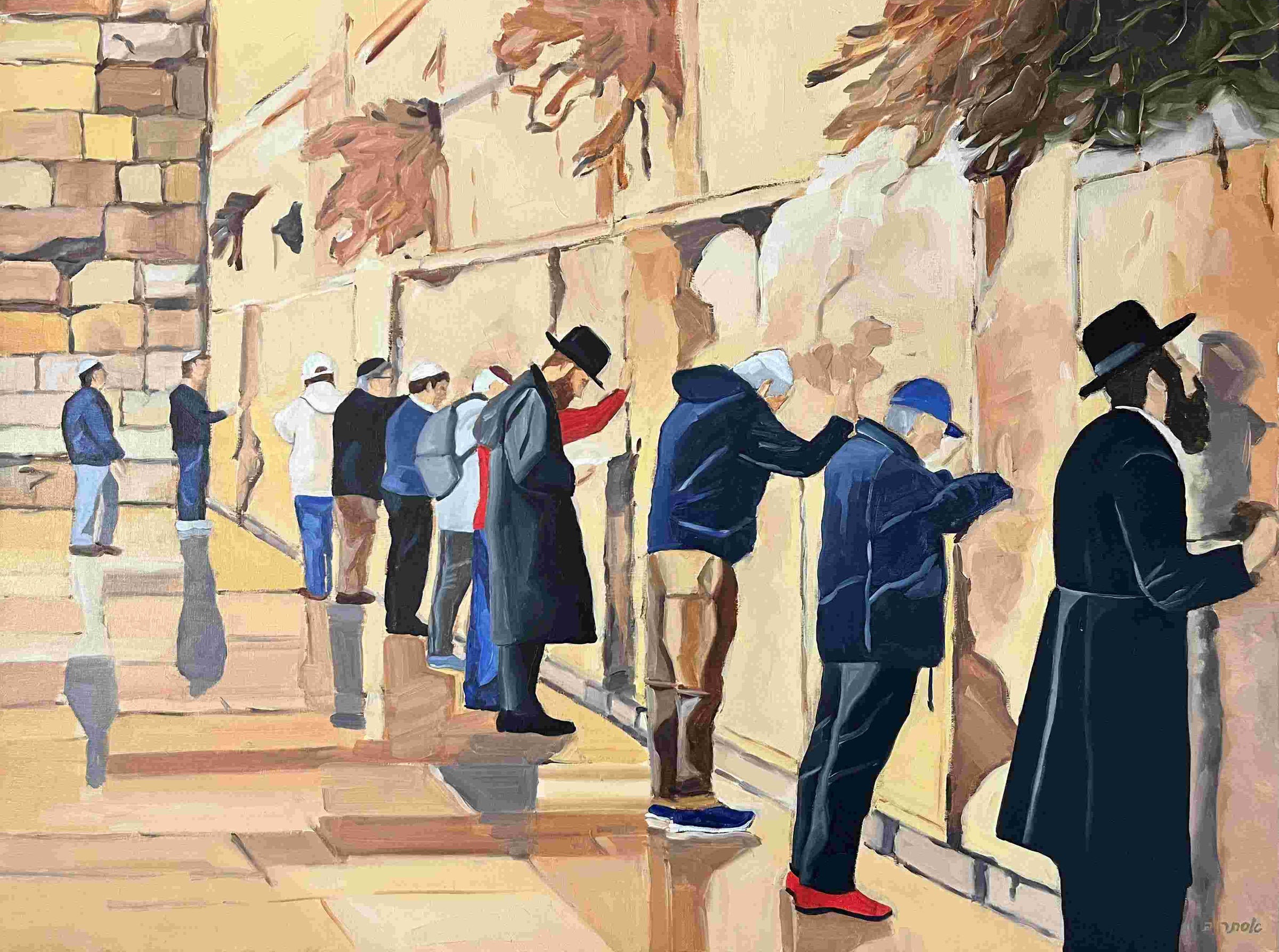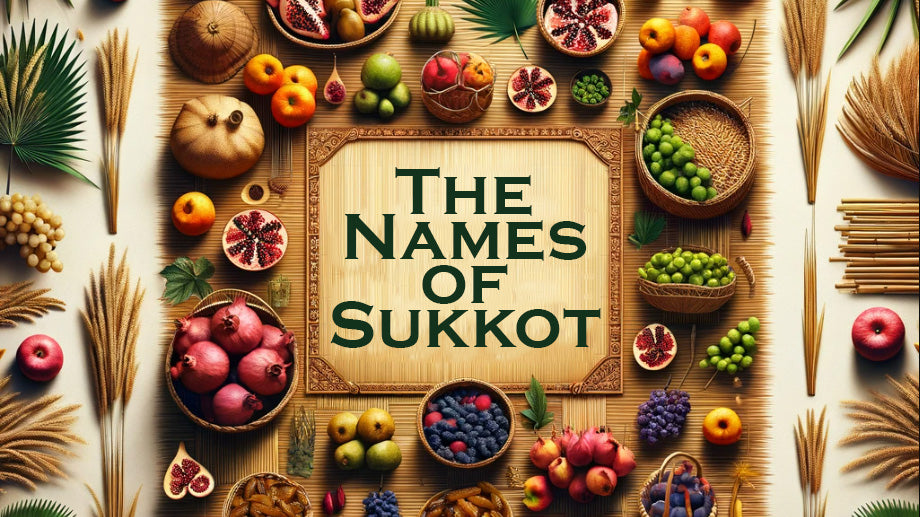

Why does Sukkot have so many names?
Sukkot commemorates the 40-year period during which the Jewish people wandered in the desert after the Exodus from Egypt. The temporary dwellings or huts called Sukkahs symbolize the makeshift dwellings in which they lived during their journey.
As with many Jewish Holidays, you may have noticed that there are multiple names for the holiday of Sukkot. Have you heard the names Sukkos, Festival of Booths, Feast of the Tabernacles, Chag Ha’Asif, or Festival of the Harvest? And there are even more! The Holiday has many aspects to focus on, so the Torah and Jewish Sages gave it many different names.
Some of these aspects that are highlighted in the names include:
- The Sukkah structure
- Recognizing the time of the harvest
- Bringing of the first fruits to Jerusalem
- Joy and celebration
Here are some common names and some interesting facts about them:
Sukkot or Succot
This is by far the most commonly used name for the holiday - basically saying "Sukkah Holiday." It uses the Sephardic pronunciation and is a transliteration of the Hebrew word for “Booths,” “Tabernacles,” and “Shelters.” Succot is the word used in the Torah (Bible) to describe the Succahs that we are commanded to build and to sit in during the Holiday. When translated to English, some use "C" and others use "K" but it's all referring to the same holiday!
The reason that this name is the most commonly used one is that the Holiday is centered around the Sukkah that we build. While there are many other aspects to the holiday, this is the largest and most prominent element and also the reason that most people think of a Sukkah structure when thinking about the holiday.
Sukkos or Succos
This name is the same as the Sukkot and Succot, but it uses the Ashkenazic pronunciation of the letter “tav” so it ends with an “S” instead of “T.” Whether you say Succos Holiday or Succot Holiday just depends on your upbringing, traditions, and customs. The meaning is the same, just like Sukkos Holiday, so don't worry about which one you elect to use! And again here, the C and K are interchangeable- it just boils down to personal preference.
Feast (Festival) of Tabernacles
This name also refers to the actual Sukkah structure which is our favorite subject! Tabernacle is another name for the Sukkah and is also a reference to another holy type of dwelling.
When the Jewish people were freed from Egypt, they not only built shelters for themselves but also built a Tabernacle for God called the "Mishkan." This is a beautiful and meaningful idea in that as Jews, we always try to bring Godliness into our homes. The deeper meaning of the Feast of Tabernacles shows on our desire to bring Godliness into all the elements of our lives - even when they are temporary and could be seen as more trivial.
Festival of Booths
Are you seeing the theme here? A Sukkah is also called a booth - not a phone booth - but a festival booth.
This name also focuses on the temporary nature of the Sukkah and reminds us that the Jewish people lived in temporary huts while traveling in the wilderness after the Exodus from Egypt. The symbolism here is similar to the feast of tabernacles. Need we say more?
Chag Ha’Asif
This Hebrew name means the Holiday of the Harvest and reflects the agricultural aspect of Sukkot . The Torah uses this name and says that you shall “gather the fruit of your labors from the field” during this time. It reminds us that this was the time that the Jewish people would gather the final harvest of the year and would bring some of the crops as offerings to God in the Beit Hamikdash (Temple) in Jerusalem.
Many people celebrate by filling their Sukkah with reminders of that harvest such as hanging fruit or decorating with agricultural themes or gorgeous tapestries that feature pictures of Jerusalem or the Land of Israel.
Sukkot is also one of the three pilgrimage festivals that the entire Jewish nation would travel to Jerusalem to be together for the holiday. The name "Chag Ha'asif" refers to the gathering of the Jewish people - with everyone coming together in Jerusalem. It focuses on the unity of the Jewish People - which is a huge element of the Sukkah which encompasses everyone equally.
Zman Simchateinu
This name, which translates to "The Time of Our Joy," also appears in the Torah, is specifically about the nature of the immense joy that we feel during this Holiday. This joy is an integral part of Sukkot observance and is reflected in the way we celebrate in the Sukkah. The Sukkah is another way for us to express our gratitude to God for all the blessings he's given us.
Think about ways that you can bring joy and happiness into your celebration of Sukkot! Throw a party in your Sukkah! Offer to host a “Sukkah Hop” for the children in your neighborhood! Make your Sukkah a place that you are excited to share with your family and friends.
Chag
The Holiday of Sukkot is also known simply as Chag which simply means holiday or festival. The Jewish Sages teach us that Sukkot is such a joyous Holiday that we can just call it by this one-word nickname. Chag stands for universal joy and the celebratory spirit that that is Sukkot. Try and find ways to bring joy to the Chag and make your Sukkah a joyous place to be!
Sukkot is a holiday that goes by different names, like Chag, Feast of Tabernacles, or Succos. It refers to the same holiday that centers around celebrating in a Sukkah, a temporary outdoor home. Come together with family and friends to enjoy the communal celebration under the stars and schach. Sukkot is a joyful time to appreciate the beauty of the Sukkah and spend time with loved ones.


